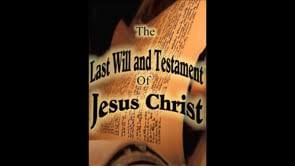
The Last Will and Testament of Jesus
![]()

![]()
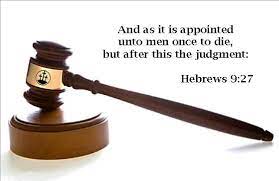
 Most everyone I know lives in denial about their own mortality. Yet the death rate remains a flat 100% in spite of endless research and the expenditure of billions of dollars. Moses, who wrote Psalm 90 about 3500 years ago, lamented this! Most of us deny constantly our own lostness and inherent evil in the eyes of the Holy God who created us.
Most everyone I know lives in denial about their own mortality. Yet the death rate remains a flat 100% in spite of endless research and the expenditure of billions of dollars. Moses, who wrote Psalm 90 about 3500 years ago, lamented this! Most of us deny constantly our own lostness and inherent evil in the eyes of the Holy God who created us.
Yet God made us very much like himself, with much freedom of choice. He did not create a race of robots, daleks or zombies! Life becomes far more rational and understandable if we agree with the Prophet Jeremiah.
"The heart is devious above all else; it is perverse—who can understand it?
I the Lord test the mind and search the heart, to give to all according to their ways, according to the fruit of their doings." (Jeremiah 17:9-11)
We each have inborn energy, determination and desire to make a name for ourselves in history, to leave a legacy for our grandchildren. But, we are house guests in a universe which belongs to Another. The Owner very much wants us to be reconciled to Him, to discover who we really are as men and woman made in His very image. God wants to be found and known! It's in knowing God that we find ourselves.
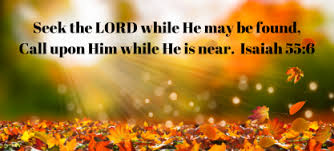 The God who made the world and everything in it, he who is Lord of heaven and earth, does not live in shrines made by human hands, nor is he served by human hands, as though he needed anything, since he himself gives to all mortals life and breath and all things. From one ancestor he made all nations to inhabit the whole earth, and he allotted the times of their existence and the boundaries of the places where they would live, so that they would search for God and perhaps grope for him and find him—though indeed he is not far from each one of us. For “In him we live and move and have our being”; as even some of your own poets have said,“For we too are his offspring.” Since we are God’s offspring, we ought not to think that the deity is like gold, or silver, or stone, an image formed by the art and imagination of mortals. While God has overlooked the times of human ignorance, now he commands all people everywhere to repent, because he has fixed a day on which he will have the world judged in righteousness by a man whom he has appointed, and of this he has given assurance to all by raising him from the dead.’ (Acts 17:24-31)
The God who made the world and everything in it, he who is Lord of heaven and earth, does not live in shrines made by human hands, nor is he served by human hands, as though he needed anything, since he himself gives to all mortals life and breath and all things. From one ancestor he made all nations to inhabit the whole earth, and he allotted the times of their existence and the boundaries of the places where they would live, so that they would search for God and perhaps grope for him and find him—though indeed he is not far from each one of us. For “In him we live and move and have our being”; as even some of your own poets have said,“For we too are his offspring.” Since we are God’s offspring, we ought not to think that the deity is like gold, or silver, or stone, an image formed by the art and imagination of mortals. While God has overlooked the times of human ignorance, now he commands all people everywhere to repent, because he has fixed a day on which he will have the world judged in righteousness by a man whom he has appointed, and of this he has given assurance to all by raising him from the dead.’ (Acts 17:24-31)
In view of the brevity and uncertainty of life, it's a good idea to make a Will. This is especially true if you have any tangible assets--a house, a car, a life insurance policy. The subject of a Last Will and Testament is vast. As usual I enjoyed revisiting the Wikipedia post, Will and Testament. Dying Intestate, without a will, is not a good idea, whether you are leaving a little or a lot behind when you die.
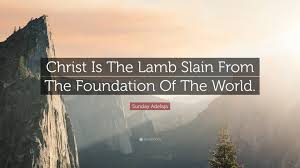 This article is about the Last Will and Testament of Jesus about which much is hidden away in the clean pages of your Bible. What's remarkable about Jesus is that He was flat broke when He died! He had neither wife nor kids. His very garments were stripped from Him when He was crucified--He died stark naked. He was then buried in a borrowed tomb, abandoned by His disciples who fled in terror. See Jesus, Plain and Simple. Jesus died at the hands of his own country men and He has generally ignored and hated by the majority of people on the planet ever since. This realities do not surprise God in the least!
This article is about the Last Will and Testament of Jesus about which much is hidden away in the clean pages of your Bible. What's remarkable about Jesus is that He was flat broke when He died! He had neither wife nor kids. His very garments were stripped from Him when He was crucified--He died stark naked. He was then buried in a borrowed tomb, abandoned by His disciples who fled in terror. See Jesus, Plain and Simple. Jesus died at the hands of his own country men and He has generally ignored and hated by the majority of people on the planet ever since. This realities do not surprise God in the least!
To understand the Last Will and Testament of Jesus we need to first understand that our Creator has always dealt with mankind by "covenants." A covenant is an agreement between two parties and there are lots of covenants in everyday life. Marriage is a covenant (or ought to be). Your bank loan or mortgage is a covenant. The terms of your job employment are a covenant. Your right to drive a motor vehicle is a covenant with the state. Covenants can be conditional or unconditional. If this is unfamiliar turf for you please do some homework. The key covenants applicable to us are unconditional --fortunately. That is, my lapses and failures do not nullify an unconditional covenant!
In the Bible there are two major covenants God enters into with mankind. They are known as "The Old Covenant" and "The New Covenant." Think "Old Testament," "New Testament". The New Covenant is unconditional. Under the terms of the Old Covenant God asked his people (Israel) to trust Him and walk with him daily. “Do this and you’ll live long and prosper.” Ignore Me and I can’t help you. I’ll warn you through prophets. This whole history of Israel went downhill one generation after another. Finally in 586 BC God destroyed Jerusalem and the Temple after taking a remnant to Babylon for 70 years.
The Old Covenant had been put into effect by Moses after the Exodus of Israel from Egypt -- about 1400 BC.
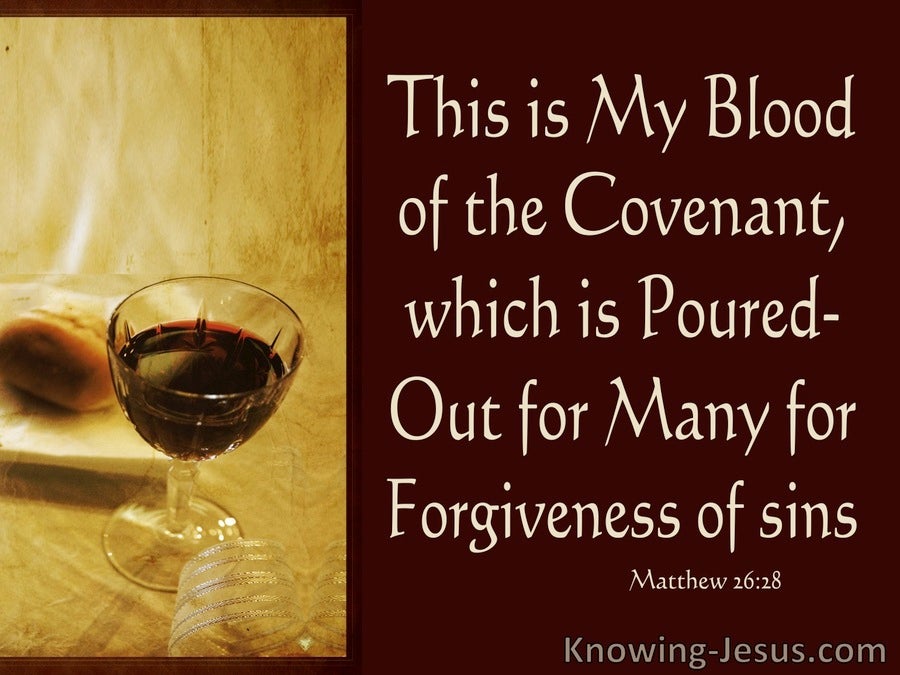 It was in her darkest hour that God announced a future New Covenant with Israel. Jesus Himself put that New Covenant into affect at the Last Supper.
It was in her darkest hour that God announced a future New Covenant with Israel. Jesus Himself put that New Covenant into affect at the Last Supper.
The days are surely coming, says the Lord, when I will make a new covenant with the house of Israel and the house of Judah. It will not be like the covenant that I made with their ancestors when I took them by the hand to bring them out of the land of Egypt—a covenant that they broke, though I was their husband, says the Lord. But this is the covenant that I will make with the house of Israel after those days, says the Lord: I will put my law within them, and I will write it on their hearts; and I will be their God, and they shall be my people. No longer shall they teach one another, or say to each other, ‘Know the Lord’, for they shall all know me, from the least of them to the greatest, says the Lord; for I will forgive their iniquity, and remember their sin no more.
Thus says the Lord,
who gives the sun for light by day
and the fixed order of the moon and the stars for light by night,
who stirs up the sea so that its waves roar—
the Lord of hosts is his name:
If this fixed order were ever to cease
from my presence, says the Lord,
then also the offspring of Israel would cease
to be a nation before me for ever.
Thus says the Lord:
If the heavens above can be measured,
and the foundations of the earth below can be explored,
then I will reject all the offspring of Israel
because of all they have done says the Lord. (Jeremiah 31:31-37)
Israel is God’s model nation. God deals with every nation as He deals with the template of Israel.
The New Covenant was possible because Jesus, the Lamb of Christ absorbed all human evil into His own Person during His Six Hours on the Cross. This was where a point in time where time met eternity. See Jesus the Sin Bearer
Propitiation is a great New Testament word: "And Jesus Himself is the propitiation (hilasmos) for our sins, and not for ours only but also for the whole world." (1 John 2:2)
But now the righteousness of God apart from the law is revealed, being witnessed by the Law and the Prophets, even the righteousness of God, through faith in Jesus Christ, to all and on all who believe. For there is no difference; for all have sinned and fall short of the glory of God, being justified freely by His grace through the redemption that is in Christ Jesus, whom God set forth as a propitiation (hilasterion) by His blood, through faith, to demonstrate His righteousness, because in His forbearance God had passed over the sins that were previously committed, to demonstrate at the present time His righteousness, that He might be just and the justifier of the one who has faith in Jesus (Romans 3:21-26)
“And for this reason He is the Mediator of the new covenant, by means of death, for the redemption of the transgressions under the first covenant, that those who are called may receive the promise of the eternal inheritance. For where there is a testament, there must also of necessity be the death of the testator. For a testament is in force after men are dead, since it has no power at all while the testator lives. Therefore not even the first covenant was dedicated without blood. For when Moses had spoken every precept to all the people according to the law, he took the blood of calves and goats, with water, scarlet wool, and hyssop, and sprinkled both the book itself and all the people, saying, “This is the blood of the covenant which God has commanded you.” Then likewise he sprinkled with blood both the tabernacle and all the vessels of the ministry. And according to the law almost all things are purified with blood, and without shedding of blood there is no remission. Therefore it was necessary that the copies of the things in the heavens should be purified with these, but the heavenly things themselves with better sacrifices than these. For Christ has not entered the holy places made with hands, which are copies of the true, but into heaven itself, now to appear in the presence of God for us; not that He should offer Himself often, as the high priest enters the Most Holy Place every year with blood of another— He then would have had to suffer often since the foundation of the world; but now, once at the end of the ages, He has appeared to put away sin by the sacrifice of Himself. And as it is appointed for men to die once, but after this the judgment, so Christ was offered once to bear the sins of many. To those who eagerly wait for Him He will appear a second time, apart from sin, for salvation.

With this background information, we can now see something of the inner workings between the three Persons of the Godhead.
Jesus the Son of God positioned Himself between a holy God and a lost human race.
Jesus is God's "Sin Bearer." This is why the writer of Hebrews says that Jesus is the Mediator of the New Covenant. Jesus is also our Great High Priest who "always lives to make intercession for us." All this is contained in the Last Will and Testament of Jesus. That Will of Jesus could not go into effect until the Maker of that Will had died.
No Third Party could be a qualified Executor of His estate. So Jesus returned from the dead, and is now seated at the right hand of the Father making certain that His heritage is preserved forever. If you are "in Christ" your legacy is not lost either! Jeremiah announced that Israel would have a glorious future no matter what! New Covenant promises apply not only to Israel but to you and me if we have trusted --and are trusting Jesus. He "always lives to make intercession for us."
God's Faithfulness: Israel and the New Covenant
![]()
Hebrews 9:11 But when Christ came as a high priest of the good things that have come,
then through the greater and perfect tent (not made with hands, that is, not of this creation),
12 he entered once for all into the Holy Place, not with the blood of goats and calves,
but with his own blood, thus obtaining eternal redemption.
13 For if the blood of goats and bulls, with the sprinkling of the ashes of a heifer,
sanctifies those who have been defiled so that their flesh is purified,
14 how much more will the blood of Christ,
who through the eternal Spirit offered himself without blemish to God,
purify our conscience from dead works to worship the living God!
15 For this reason he is the mediator of a new covenant,
so that those who are called may receive the promised eternal inheritance,
because a death has occurred that redeems them from the transgressions under the first covenant.
16 Where a will is involved, the death of the one who made it must be established.
17 For a will takes effect only at death, since it is not in force as long as the one who made it is alive.
18 Hence not even the first covenant was inaugurated without blood.
19 For when every commandment had been told to all the people by Moses in accordance with the law,
he took the blood of calves and goats, with water and scarlet wool and hyssop,
and sprinkled both the scroll itself and all the people,
20 saying, ‘This is the blood of the covenant that God has ordained for you.’
21 And in the same way he sprinkled with the blood both the tent and all the vessels used in worship.
22 Indeed, under the law almost everything is purified with blood,
and without the shedding of blood there is no forgiveness of sins.
23 Thus it was necessary for the sketches of the heavenly things to be purified with these rites,
but the heavenly things themselves need better sacrifices than these.
24 For Christ did not enter a sanctuary made by human hands, a mere copy of the true one,
but he entered into heaven itself, now to appear in the presence of God on our behalf.
25 Nor was it to offer himself again and again,
as the high priest enters the Holy Place year after year with blood that is not his own;
26 for then he would have had to suffer again and again since the foundation of the world.
But as it is, he has appeared once for all at the end of the age to remove sin by the sacrifice of himself.
27 And just as it is appointed for mortals to die once, and after that the judgement,
28 so Christ, having been offered once to bear the sins of many, will appear a second time,
not to deal with sin, but to save those who are eagerly waiting for him.
The passage from Hebrews 9:15 through 9:28 takes a slightly different slant. Though the same term covenant is used as in verses 1-14, it is now treated more as a bequest being administered by a living executor after the death of the will-maker. However, Christ is seen both as the will-maker who dies, and the executor who administers the estate, just as he was both the offering for sin and the high priest who offered it. The phrase For this reason, which introduces verse 15, looks back to the close of verse 14, that we may serve the living God. The promised Messiah administers the new covenant to those who are called in order that they may be equipped to serve the living and true God. That equipping capability of the new covenant is called the promised eternal inheritance. We have already seen that it consists of an inner understanding of the nature of both good and evil; an intimate, Father-child relationship with God; and a total and continuing forgiveness of sins. This is the inheritance which our Mediator offers to us whenever we come to the throne of grace (4:16) to receive it by faith. Just as the heir of a fortune may draw from its resources at any time, so we are expected to draw from this great bequest, as it is now available to us after the death of the testator.
The last clause of verse 15 introduces the author's emphasis on the bequest, or promised eternal inheritance, flowing from the death of Jesus. Verses 16-17 argue that the covenant (viewed as a will) cannot take effect apart from the death of the will-maker. This principle is seen even in the first covenant (v. 18-22) since Moses, having read the law to the people, took the blood of animals and sprinkled the scroll of the law, the people and everything connected with the service of the tabernacle (Lev 8:10, 19, 30). He thus indicated that the old covenant was based upon death---the death of animals. Without such a death, even the limited forgiveness provided for in the first covenant could not take effect, for without the shedding of blood there is no forgiveness. A striking scene is described in Exodus 24:8 when Moses sprinkled the blood upon the people. It was meant to impress on them that sin cannot be set aside, even by a loving God, without a death occurring. His judicial sentence, "the soul who sins is the one who will die" (Ezekiel 18:4), must be carried out. By sprinkling the blood of an animal on the people, Moses is saying that God would accept that substitution as a temporary reprieve until the true Substitute should come. The people must realize that sin is serious, since only death can relieve it. When the new covenant replaces the old, it not only removes sin through the death of Jesus but provides a new understanding and a new intimacy that make the service of God a delight and an enriching experience.
By contrast, the author stresses again the value of the death of Jesus. Verses 23-26 speak of the blood of Jesus as an infinitely better sacrifice than the animal deaths that purified the copies of the heavenly things contained in the tabernacle. Though the imagery here is drawn from the Day of Atonement, we must not think of Jesus as bearing a basin of his own blood into heaven to present it before the throne of God at his ascension, as some commentators have concluded. The rending of the curtain in the temple at the time of the crucifixion is ample evidence to indicate that the blood shed in the death of Jesus was the moment when full atonement for sin was accomplished.
The writer lays great stress on the contrast between the repeated offerings of the high priest in the tabernacle on the Day of Atonement and the one offering of Jesus upon the cross. Because of the infinitely superior nature of Christ's sacrifice, founded on his deity and sinless humanity, his one offering was enough for all time. He need not suffer many times since the creation of the world to do away with sin, but the one sacrifice of himself was sufficient.
As we have already noted, the entrance, by faith, of Jesus into the spirit of a believer gives this person access to the heavenly reality which corresponds to the earthly Holy of Holies. That is where God now dwells (John 14:20, 23), and where our great high priest makes intercession for his own. He has no need to suffer and die again since his perfect sacrifice of himself completely satisfied every demand of divine justice. He can now sustain and support his people without any limitation on himself arising from their sins, since that has been settled forever in the once-for-all sacrifice of the cross. The phrase the end of the ages designates the present age as the last of a series. It marks the end of human history as we now know it and will terminate in the events which Jesus foretold would occur "at the end of the age" (Matthew 24-25). Throughout this section the emphasis of the writer has been on the uniqueness of Christ's death. Again and again he has called it "once-for-all" (hapax or ephapax). That thought comes to the fore again in verses 27-28. Just as any fallen human being is destined to die once for all time, with judgment awaiting beyond death, so Christ also died once for all time to deal with sin. For the many who trust in him, it is not judgment that awaits beyond their personal death. This judgment has been forever removed by the sacrifice of Christ. Instead, they may confidently expect that he will appear a second time, not to bear sin, but to bring salvation to those who are waiting for him.
This salvation points to the resurrection of the body. For them, the spirit has been regenerated already and the soul is being saved as Christ likeness is formed in that believer (2 Corinthians 3:18). What yet awaits is the raising of the body so that the whole person becomes a dwelling place of God forever. This is the only place in the New Testament where the return of Christ is called a second coming. During his first coming, he dealt with the problem of human sin on the cross; at his second coming the full effect of that sacrifice will be manifested in the resurrection (or "transformation"---1 Corinthians 15:51-52) of the bodies of those who wait for him. Hebrews by Ray Stedman (IVP) 1992. Series: Teaching through Hebrews, 2002, by Lambert Dolphin
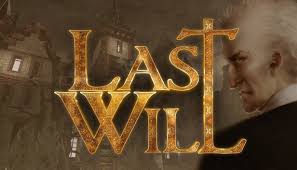

There is yet another aspect of the New Covenant. It is this: Jesus now holds the title deed to the universe. This is clearly stated in Chapters One and Five of the book of the Revelation.
Look! He is coming with the clouds;
every eye will see him,
even those who pierced him;
and on his account all the tribes of the earth will wail.
So it is to be. Amen.‘I am the Alpha and the Omega’, says the Lord God, who is and who was and who is to come, the Almighty...Then I turned to see whose voice it was that spoke to me, and on turning I saw seven golden lampstands, and in the midst of the lampstands I saw one like the Son of Man, clothed with a long robe and with a golden sash across his chest. His head and his hair were white as white wool, white as snow; his eyes were like a flame of fire, his feet were like burnished bronze, refined as in a furnace, and his voice was like the sound of many waters. In his right hand he held seven stars, and from his mouth came a sharp, two-edged sword, and his face was like the sun shining with full force. When I saw him, I fell at his feet as though dead. But he placed his right hand on me, saying, ‘Do not be afraid; I am the first and the last,18and the living one. I was dead, and see, I am alive for ever and ever; and I have the keys of Death and of Hades. (Revelation 1)
![]()
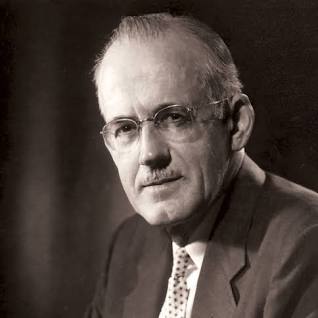
"At the heart of the Christian system lies the cross of Christ with its divine paradox. The power of Christianity appears in its antipathy toward, never in its agreement with, the ways of fallen men. The truth of the cross is revealed in its contradictions. Simply observe the true Christian as he puts into practice the teachings of Christ and His apostles. Note the contradictions:
The Christian believes that in Christ he has died, yet he is more alive than before and he fully expects to live forever. He walks on earth while seated in heaven and though born on earth he finds that after his conversion he is not at home here. He loses his life to save it and is in danger of losing it if he attempts to preserve it. He goes down to get up. If he refuses to go down he is already down, but when he starts down he is on his way up.
He is strongest when he is weakest and weakest when he is strong. Though poor he has the power to make others rich, but when he becomes rich his ability to enrich others vanishes. He has most after he has given most away and has least when he possesses most.
He may be and often is highest when he feels lowest and most sinless when he is most conscious of sin. He is wisest when he knows that he knows not and knows least when he has acquired the greatest amount of knowledge. He sometimes does most by doing nothing and goes furthest when standing still. In heaviness he manages to rejoice and keeps his heart glad even in sorrow.
He fears God but is not afraid of Him. In God's presence he feels overwhelmed and undone, yet there is nowhere he would rather be than in that presence. He knows that he has been cleansed from his sin, yet he is painfully conscious that in his flesh dwells no good thing.
He loves supremely One whom he has never seen, and though himself poor and lowly he talks familiarly with One who is King of all kings and Lord of all lords, and is aware of no incongruity in so doing. He feels that he is in his own right altogether less than nothing, yet he believes without question that he is the apple of God's eye and that for him the Eternal Son became flesh and died on the cross of shame..." [A. W. Tozer, That Incredible Christian (Tyndale House] Biography
![]()
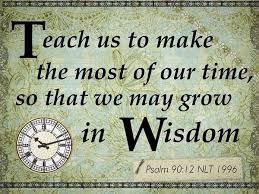
A Prayer of Moses, the man of God.
Lord, you have been our dwelling-place
in all generations.
Before the mountains were brought forth,
or ever you had formed the earth and the world,
from everlasting to everlasting you are God.
You turn us back to dust,
and say, ‘Turn back, you mortals.’
For a thousand years in your sight
are like yesterday when it is past,
or like a watch in the night.
You sweep them away; they are like a dream,
like grass that is renewed in the morning;
in the morning it flourishes and is renewed;
in the evening it fades and withers.
For we are consumed by your anger;
by your wrath we are overwhelmed.
You have set our iniquities before you,
our secret sins in the light of your countenance.
For all our days pass away under your wrath;
our years come to an end like a sigh.
The days of our life are seventy years,
or perhaps eighty, if we are strong;
even then their span is only toil and trouble;
they are soon gone, and we fly away.
Who considers the power of your anger?
Your wrath is as great as the fear that is due to you.
So teach us to count our days
that we may gain a wise heart.
Turn, O Lord! How long?
Have compassion on your servants!
Satisfy us in the morning with your steadfast love,
so that we may rejoice and be glad all our days.
Make us glad for as many days as you have afflicted us,
and for as many years as we have seen evil.
Let your work be manifest to your servants,
and your glorious power to their children.
Let the favor of the Lord our God be upon us,
and prosper for us the work of our hands—
O prosper the work of our hands!

![]()


Music for today
A Glorious Church
I Sing the Mighty Power of God
Jesus, The Light of the World
Pachelbel: Canon in D
Lambert Dolphin
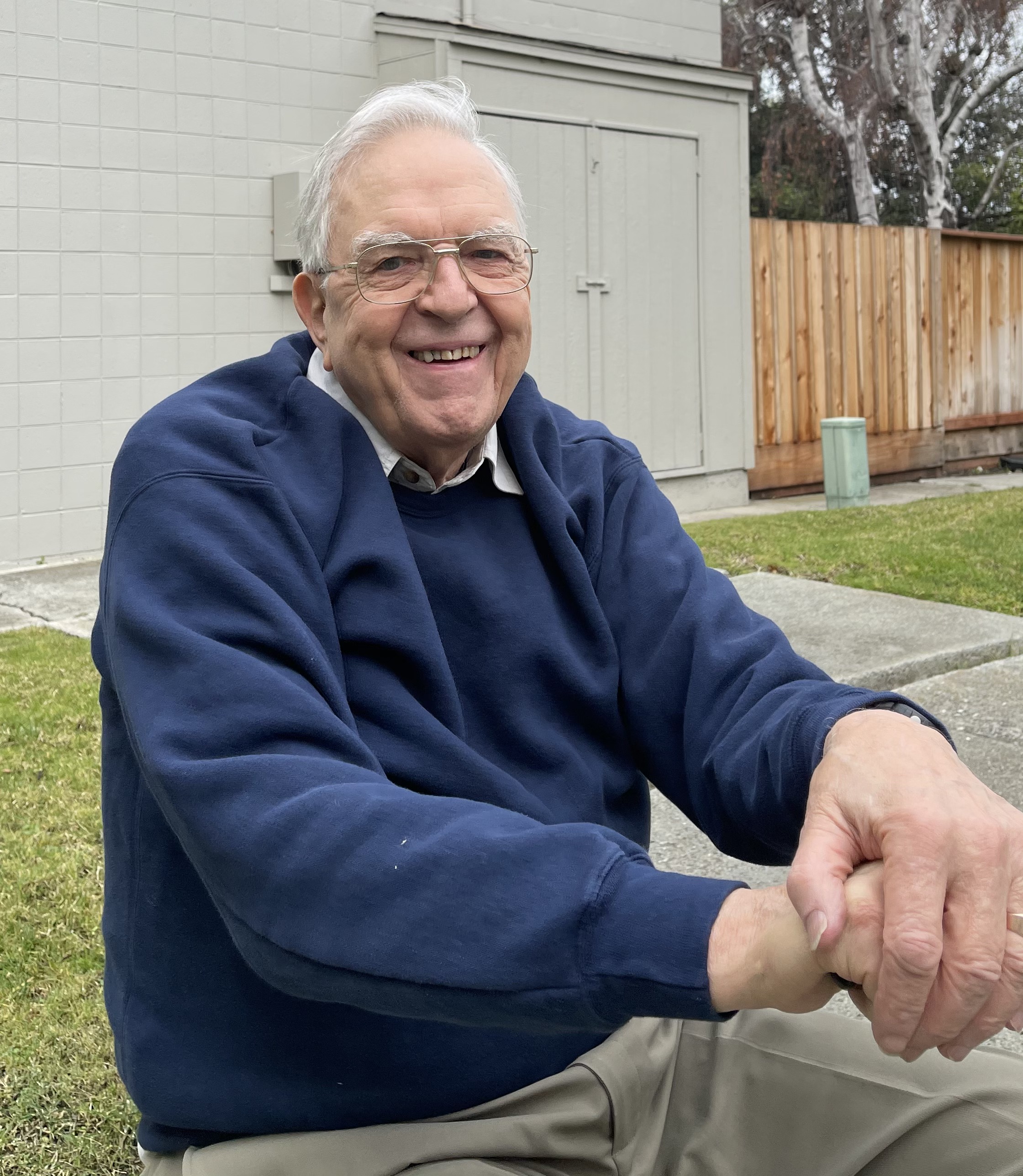
October 14, 2021. December 3, 2021. September13, 2023.